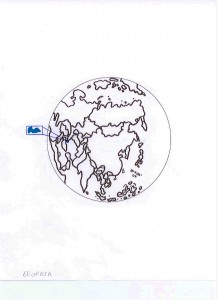GEORGIA
A. THE COUNTRY
Georgia is a sovereign state in the Caucases region of Asia. The
constitution is that of a representative democracy organized as a
unitary, semi-presidential republic. The great challenge is the
existence of two breakaway regions, Abkhazia and South Ossetia.
Inter-ethnic conflicts, that have been aided by Russian efforts to
undermine and control the country, have displaced nearly a quarter of a
million people from home and village. There is great humanitarian needs
for these people who live in makeshift accommodation and camps in and
around the capital. The economy is based on fruit, tea, cotton, wine,
tourism, industry and service. There is a potential for hydro-electric
power. Georgia has a strategic location for European-Asian transit of
goods that could be exploited.
B. THE PEOPLE
The population is ~4,200,000 and is on the decline. The official
language is Georgian. ~92.2% are Eurasian, ~6.4% Turkic, ~1.2%
Iranian-Median, ~0.4% Other (Assyrian, Jews).
C. RELIGIONS AND CHRISTIANITY/PENTECOSTALISM
The Orthodox Church has been a stable factor over the centuries.
Changes in the law in 2005 make it easier for non-Orthodox faiths to
operate more freely and with less threat of persecution. Christian
groups of all expressions have experienced growth.
~78.67% claim to be Christian, ~11.3% Muslim, ~9.58% Non-religious,
~0.25% Jewish, ~0.2% Other.
In the Christian category:
~76.13% are Orthodox, ~0.95% Catholic, ~0.52% Protestant, ~0.29%
Independent.
Evangelicals represent ~1.5% of the population.
Charismatics represent ~0.4% and of those ~0.3% are Pentecostals.
Donna Siemens
References:
http://en.wikipedia.org
Operation World, Jason Mandryk. Colorado Springs: Biblica Publishing, 2010.

